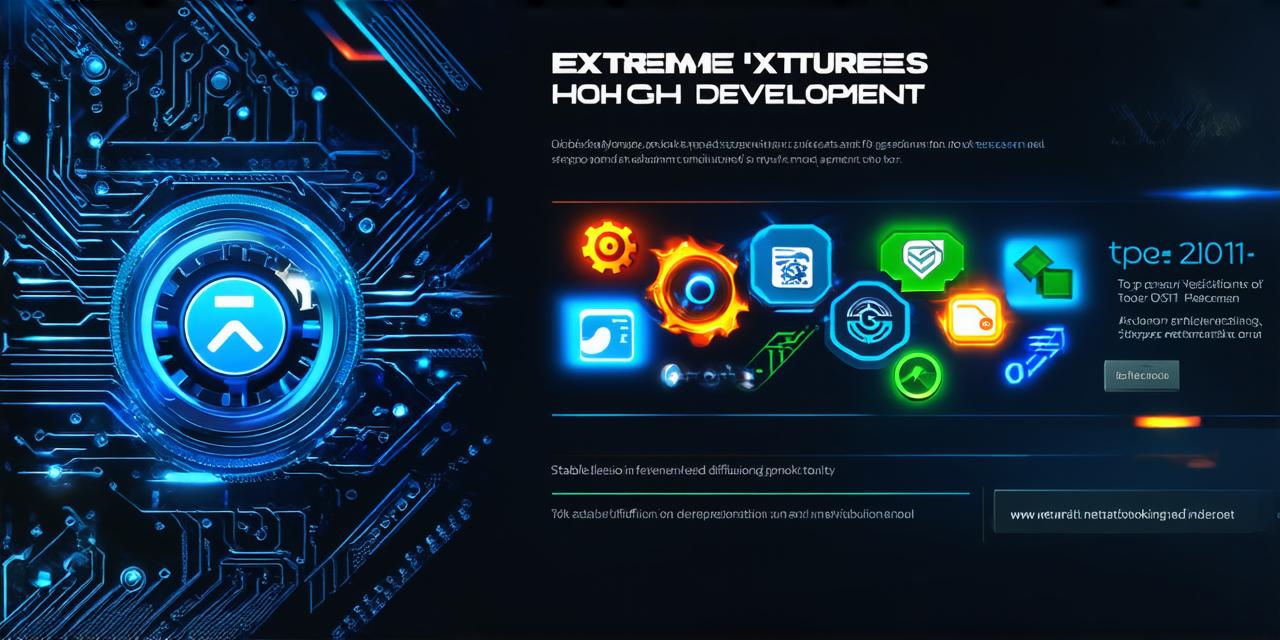As the world becomes increasingly reliant on technology, game development is becoming an even more in-demand skill. However, not all programming languages are created equal when it comes to creating engaging and immersive games. In this article, we will explore some of the top programming languages for game development and discuss their benefits and drawbacks.
1. C++: The Powerhouse of Game Development
C++ is one of the most popular programming languages used in game development due to its speed, efficiency, and flexibility. It is a powerful language that can handle complex graphics, physics engines, and AI algorithms. C++ is also highly customizable, allowing developers to write optimized code for specific hardware or operating systems.
However, one of the main drawbacks of C++ is its steep learning curve and lack of portability. Developers need a good understanding of data structures, memory management, and optimization techniques to work with this language effectively. Additionally, C++ code needs to be recompiled for each platform, which can be time-consuming and costly.
2. Unity: The All-in-One Game Engine
Unity is a popular game engine that supports multiple programming languages, including C, JavaScript, and BooScript. It is a powerful tool that allows developers to create games for various platforms, including PC, mobile, web, and consoles. Unity also has a vast community of developers who share their knowledge and resources through forums and tutorials.
One of the main benefits of Unity is its ease of use and cross-platform support. Developers can create games once and deploy them on multiple platforms without having to rewrite the code. Additionally, Unity has a built-in asset store that offers a wide range of pre-made assets, including graphics, animations, and sound effects, which can save developers time and effort.
However, one of the main drawbacks of Unity is its limited performance compared to C++. Unity relies on JavaScript, which is an interpreted language that can be slower than compiled languages like C++. Additionally, Unity can be memory-intensive, which can cause performance issues on low-end hardware.
3. Unreal Engine: The Power of Realism
Unreal Engine is a popular game engine that is known for its high-quality graphics and realism. It is used by many AAA studios to create games for PC, consoles, and virtual reality (VR) platforms. Unreal Engine supports multiple programming languages, including C++, C, and Blueprints.
One of the main benefits of Unreal Engine is its advanced physics engine, which allows developers to create realistic simulations of physical objects and environments. Additionally, Unreal Engine has a vast array of tools and features for creating complex graphics and animations, making it an excellent choice for game developers who want to create visually stunning games.
However, one of the main drawbacks of Unreal Engine is its high learning curve and steep development costs. Developers need to have a good understanding of advanced programming concepts like multithreading, memory management, and optimization techniques to work with this engine effectively. Additionally, Unreal Engine can be expensive to license, making it less accessible to smaller studios or indie developers.
4. Godot: The Open-Source Game Engine
Godot is an open-source game engine that supports multiple programming languages, including C++, C, and GDScript. It is designed to be user-friendly and accessible to developers of all skill levels, making it a popular choice for indie developers and small studios.
One of the main benefits of Godot is its modular design, which allows developers to write code in separate modules that can be easily reused or replaced. Additionally, Godot has a built-in asset pipeline that simplifies the process of creating games by automatically generating textures, animations, and other assets from 3D models.
However, one of the main drawbacks of Godot is its limited performance compared to more powerful engines like Unreal Engine or Unity. Godot relies on GDScript, which is an interpreted language that can be slower than compiled languages like C++. Additionally, Godot has a smaller community of developers than other engines, making it less likely to receive frequent updates and improvements.
Case Studies: Real-Life Examples of Successful Game Development with These Languages
Let’s take a look at some real-life examples of successful game development using these programming languages:
- C++: Battlefield V
Battlefield V is an action-packed first-person shooter developed by EA DICE using C++ as the primary programming language. The game features stunning graphics, realistic physics, and complex AI algorithms that make it one of the most immersive and engaging games on the market.
2. Unity: Pokémon Go
Pokémon Go is a popular augmented reality (AR) game developed by Niantic using Unity as the primary programming language. The game allows players to catch virtual creatures in real-world environments, making it a massive hit with millions of users worldwide.
3. Unreal Engine: Fortnite
Fortnite is a popular battle royale game developed by Epic Games using Unreal Engine as the primary programming language. The game features high-quality graphics, realistic physics



